#Important Surah
Explore tagged Tumblr posts
Text
Step-by-Step Guide to Salah: Performing Islamic Prayer Correctly
Salah, also known as Islamic prayer, is a fundamental pillar of Islam. It’s a direct connection between a Muslim and Allah (God). This guide will explain each step of performing Salah, along with its significance. Preparing for Prayer: Ensuring Purity and Focus Cleanliness (Wudu or Ghusl): Before prayer, Muslims achieve a state of ritual purity by performing either wudu (ablution) or ghusl…
#Benefits of performing Salah#Completing Salah with Salaam#Daily Muslim prayers#digital islamic guide#digitalislamic#digitalislamicguide#Facing the Qibla for Salah#Guide to Salah for beginners#How to do wudu before Salah#How to perform Salah#Importance of Salah in Islam#Islamic prayer steps#Ruku and Sujud in Salah#Salah prayer#Steps for Salah#Surah recitation in Salah#Tashahud in Salah#What to recite during Salah
0 notes
Text
dhul hijjah - a second chance after ramadan ♡
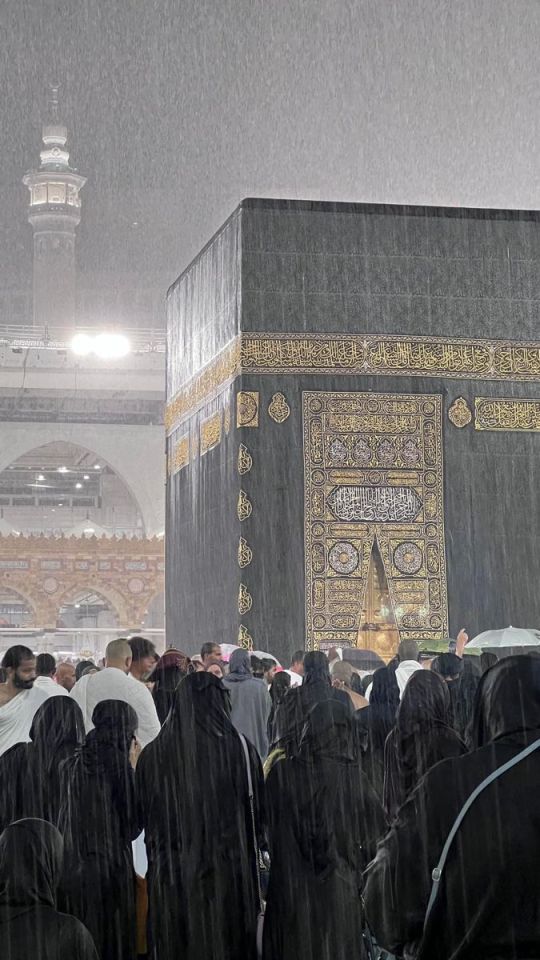
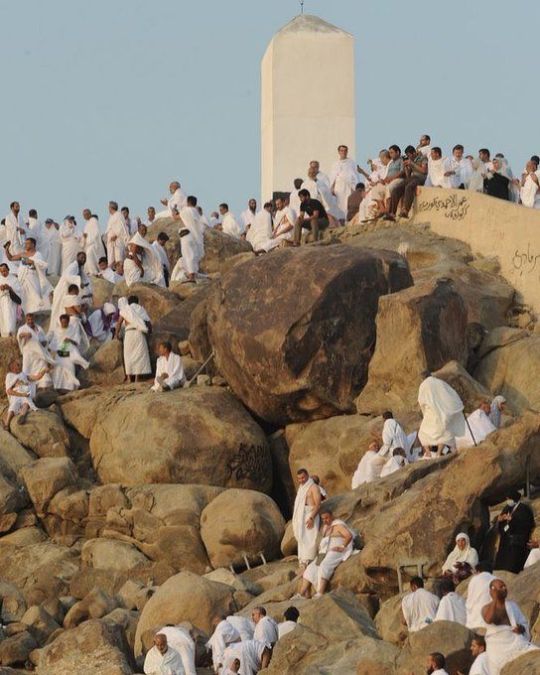
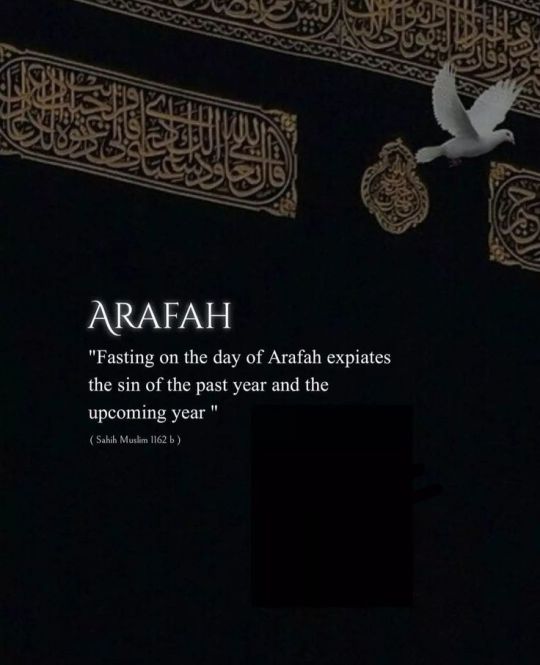
what is dhul hijjah?
meaning 'the month of the pilgrimage' as many muslims go on hajj in this time, dhul hijjah is the twelfth and final month of the islamic year. the first ten days of this month are the best days of the entire year. yes - even better than ramadan:
it was narrated by Ibn Abbas that the Prophet ﷺ said: “There are no days during which righteous deeds are more beloved to Allah than these days,” meaning the (first) ten days of Dhul- Hijjah" - Sunan Ibn Majah 1727
these ten days encompass the day of Arafah, Hajj, and Eid ul-Adha
this month, we remember prophet Ibrahim (as) and how he was told by Allah to sacrifice his son, Hadrat Ismail (as). he took hadrat Ismail (as) on top of mount Arafat for the sacrifice, and just as he was about to sacrifice Ismail (as), Allah told him to stop as He was only testing him to see if he was truly obedient and willing to sacrifice everything for Allah's sake. the 9th day of dhul hijjah is the day of Arafah, commemorating this event.
we also remember how Allah told Ibrahim (as) to leave Ismail (as) and his wife, Hadrat Hajar, in a desert - which, today, is present day makkah.
this month is therefore about obedience, surrender and sacrifice for Allah سُبْحَٰنَهُۥ وَتَعَٰلَىٰ.
depending on the sighting of the moon, dhul hijjah is expected to begin friday 7th june!
what to do in these first ten days?
even if you're not going for hajj, you should use these blessed days for extra righteous deeds and worship, especially on the day of arafah - the 9th day (which falls on 16th june this year, Insha'Allah) - the day before eid.
FASTING
it is a sunnah to fast the first 9 days of dhul hijjah. if you won't fast all 9 days, then it's best to prioritise the 9th day, the day of Arafah. this is because the prophet ﷺ said: “Fasting on the Day of ‘Arafah expiates for the sins of the year before and the year after.” (Sunan Ibn Majah 1730) however, unless you're going for hajj and you're actually at Afarah, then you cannot as it's forbidden to fast while on the mountain.
DHIKR
it's extremely important to increase your dhikr in this time. recite the tasbeeh, tahmeed, takbeer and tahleel often: tasbeeh - subhanallah (Holy is Allah) tahmeed - alhamdulillah (all praise belongs to Allah) takbeer - Allah Akbar (Allah is the Greatest) tahleel - laa ilaha ill-Allah (there is no God except Allah) Allah said “remembrance of Allah indeed is the greatest virtue” (29:46) - it brings you closer to Him, you feel more certain in His powers that He can remove any hardship which makes the heart feel less anxious, Allah becomes your Friend, you'll become successful (remember Allah often so you may prosper” (8:46), it cleans your heart, it protects you from harm, Allah becomes pleased with you. it truly is the greatest virtue.
also recite istighfar (astagfirullah) and repent for your sins
the best dua to recite on the day of Arafah itself is:
laa ilaaha ill-allaahu, waḥdahu laa shareeka lah, lahul-mulku wa lahul-ḥamdu, wa huwa ‛alaa kulli shay’in qadeer - (None has the right to be worshipped except Allah, alone, without partner. To Him belongs sovereignty and all praise and He is over all things omnipotent)
OTHER INCREASED ACTS OF WORSHIP
do extra voluntary acts of worship (nawafil, sunnah prayers, duha prayers)
read a lot of Qur'an
listen to the Qur'an more
send many, many salutations to the Prophet ﷺ (durood sharif!)
practice gratitude. what are you thankful for?
pray tahajjud
give sadaqah / donate to a charity. make sacrifices!
be kind!
read translation and commentary of surahs
listen to islamic podcasts/read islamic books to increase your knowledge
memorise a surah
talk to Allah!!!! pray!!!!
try and increase your acts of worship throughout the 9 days and especially on the 9th day, the day of arafah, which is the day before eid! (16th june Insha'Allah, depending on where you are in the world)
10th day - eid ul adha
on the tenth day of dhul hijjah (eid), our beloved Prophet ﷺ used to give Qurbani (a sacrifice) every year to remember Ibrahim (as) almost sacrificing his son for Allah سُبْحَٰنَهُۥ وَتَعَٰلَىٰ's sake. muslims sacrifice animals all over the world to follow this sunnah, and donating qurbani is encouraged for every Muslim who is financially able to do so (this can be done online)

may Allah سُبْحَٰنَهُۥ وَتَعَٰلَىٰ make it easy for us to utilise these blessed and best 10 days to the best of our abilities, forgive us of our sins, draw us ever nearer to Him and allow us to become His best friends, Allahumma Ameen ♡
#islam#dhul hijjah#arafah#muslim#religion#sabrgirl#ramadan#allah#quran#prayers#islamic#muslims#arafat#jummah
176 notes
·
View notes
Text
Midnight Pals: Desert Planet
Stephen King: so i'm gonna go over to space coven tonight to tell a story Clive Barker: what, the sci fi nerds? good luck with that King: oh they're not so bad once you get to know them, clive Barker: i do not intend to know nerds
King: look, clive, you know mary goes over to the sci fi campfire sometimes Barker: i do not believe it King: it's true! she invented sci fi, you know Barker: mary shelley? OUR mary shelley? the queen witch? Barker: she invented being a nerd?
Barker: oh steve Barker: you can't expect me to swallow that whopper King: it's true! edgar, tell him Poe: steve's right, clive. she really did Barker: Barker: well now i just don't know what to believe
King: i know those sci fi guys are a little odd but King: if you ever want to read a prose version of a mildly confusing math problem King: i mean bam they're your guys! Barker: Barker: yeah well Barker: have fun with that
King: you know, clive a lot of science fiction actually deals with important issues in today's society? King: they really make you think [at space coven] Robert Heinlein: so once we space-stead Pinochet's Gulch on an asteroid, we'll be free from the tyranny of age of consent laws
[at space coven] King: so in this story they invent a way to travel through space King: but you have to be unconscious for it to work Frank Herbert: i have a better idea for space travel Herbert: what if you had to get really blasted
Herbert: let me explain my vision steve Herbert: In a distant time Herbert: And far away place Herbert: The planet Arrakis floats deep in space Herbert: Sky of three suns Herbert: Land of precious spice Herbert: The melange rush brought great houses at any price
Herbert: Then one day, a Muad'Dib appeared Herbert: With powers of hawk, wolf, puma and bear Herbert: Protector of peace, scion of the Bene Gesserit ladies Herbert: Champion of justice, Marshall Paul Atreides! King: King: hey how many of those mushrooms did you eat
Herbert: so the important thing about Dune, okay Herbert: is there's all this political intrigue Heinlein: and worms? Herbert: yeah yeah there's gonna be worms Herbert: let's talk about these factions though Heinlein: how big are the worms
Herbert: you're gonna love this story Herbert: though its not as great as the melodic beauty & divine truth of the 114 surahs of the Qur'an Heinlein: Herbert: inshallah Heinlein: why do you always have to put so much islam in it Herbert: i just Herbert: i just think its neat
Mary Shelley: [busting into clearing] sup fuckers Shelley: who's ready for their weekly beating? Heinlein: no! no! not mary shelley! Heinlein: have mercy!!! Heinlein: here, take all our lunch money! Heinlein: just don't punish us anymore!
King: mary! Is this what you've been doing when you come to this campfire? Shelley: [wailing on Heinlein] what? oh yeah, p much.
#midnight pals#the midnight society#midnight society#stephen king#clive barker#edgar allan poe#mary shelley#frank herbert#robert heinlein
196 notes
·
View notes
Text
Why The Quran Asks Us To Ponder
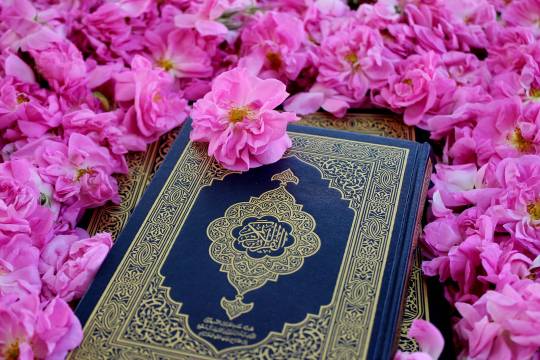
Islam emphasises reflection, urging believers to use reason and contemplation to grasp the magnificence of creation and the purpose of life. The Quran, revealed to be a guidance for humanity, frequently calls us to use our intellect and ponder over the signs of Allah’s creation, encouraging deeper faith, gratitude, and understanding.
Below, we explore the Quran’s repeated call to contemplation, the signs in Allah’s creation, and the wisdom behind this reflection.
The Call to Ponder: A Divine Invitation
The Quran mentions the act of pondering 13 times, inviting readers to think beyond surface realities. Reflection in Islam is not just intellectual but also spiritual, helping people develop a connection with Allah by appreciating the beauty and precision of His creations. The Quran often presents questions that awaken hearts and minds:
“Do you not think?” (Surah Al-Baqarah, 2:44)
“Will you not then ponder?” (Surah Al-Baqarah, 2:219)
“Do they not reflect upon the Quran?” (Surah An-Nisa, 4:82)
“Will they not contemplate within themselves?” (Surah Ar-Rum, 30:8)
“So reflect, O people of insight.” (Surah Al-Hashr, 59:21)
“Do they not contemplate the Word?” (Surah Al-Mu’minun, 23:68)
“Do they not reflect upon the stories?” (Surah Yusuf, 12:111)
“Will you not ponder?” (Surah Al-Anaam, 6:50)
“In that are signs for those who reflect.” (Surah Ar-Rum, 30:21)
“For those who think and reflect…” (Surah Al-Zumar, 39:42)
“Do they not reflect on what Allah has created?” (Surah Al-A’raf, 7:185)
“Have they not traveled through the land to reflect?” (Surah Al-Hajj, 22:46)
“Do they not reflect on the heavens and the earth?” (Surah Ghafir, 40:57)
The Quran draws our attention to the vastness and intricacy of the universe as signs of Allah’s creative power:
“Indeed, in the creation of the heavens and the earth, and the alternation of the night and the day, are signs for those of understanding.” (Surah Aal-Imran, 3:190)
From the sky to the earth, the Quran teaches that every element of nature reflects divine wisdom. The harmony in ecosystems, the precise orbit of celestial bodies, and the perfect design of living beings all bear witness to Allah’s knowledge and control.
Prophet Muhammad (ﷺ) said: “Think about the creation of Allah, but do not think about the essence of Allah, for you will never be able to comprehend it.” (Sunan Abi Dawood, 4726)
Islam invites us to appreciate Allah’s signs but warns against delving into matters beyond human understanding, such as Allah’s essence.
Gratitude and Faith through Reflection
Contemplation naturally leads to gratitude. When we reflect upon the intricacies of creation, we recognizse our dependence on Allah’s blessings and mercy, increasing our faith and humility. The Quran says:
“If you were to count the favours of Allah, you could never enumerate them. Indeed, Allah is Forgiving and Merciful.” (Surah An-Nahl, 16:18)
Reflection transforms routine experiences — such as observing the sunrise or feeling the breeze — into moments of spiritual awareness. Gratitude, in Islam, is not merely verbal but is shown through worship, kindness, and responsible stewardship of the earth.
Islam’s Encouragement to Seek Knowledge
Islam’s emphasis on reflection fosters a deep love for learning and personal growth. The first revealed words of the Quran were:
“Read in the name of your Lord who created.” (Surah Al-Alaq, 96:1)
This call to read, understand, and seek knowledge underscores the importance of intellectual development in Islam. The Prophet Muhammad (ﷺ) said:
“Seeking knowledge is an obligation upon every Muslim.” (Ibn Majah, Hadith 224)
The act of pondering leads to acquiring knowledge, developing moral character, and fulfilling our purpose as vicegerents of Allah on earth.
Islamic Science and Innovation: A Legacy of Enlightenment Exploring the Golden Age and Pioneering Contributions in Astronomy and Medicinemedium.com
The Quran and Sunnah guide believers to reflect on both scripture and creation, allowing them to develop a profound connection with Allah. Through contemplation, one not only understands life’s purpose but also appreciates the beauty, wisdom, and mercy of God. This reflection leads believers to live mindfully, with gratitude and humility, striving to embody the teachings of Islam.
Emphasis of Good Character and Manners in Islam Islam is not just a set of rituals or beliefs; it is a comprehensive way of life that emphasises the importance of good…medium.com
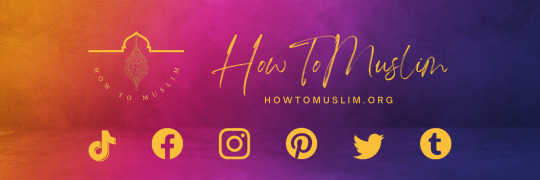
Learn more about Islam here: https://www.howtomuslim.org
42 notes
·
View notes
Text

Surah Ar-Ra'd (13:21). The authentic verse in Arabic and its meaning in English are as follows:
**Transliteration:**
Wa allatheena yasiloona ma amara Allahu bihi an yoosala wayakhshawna rabbahum wayakhafoona soo'a alhisab
**Translation:**
"And those who join that which Allah has ordered to be joined, and fear their Lord, and dread the terrible reckoning."
This verse highlights the importance of maintaining the ties and relationships that Allah has commanded to be upheld, such as family and community connections. It also emphasizes having a sense of awe and fear of Allah and being conscious of the severe judgment in the hereatter.
For further details, you may refer to reputable Quran translations and commentaries, such as those by Abdullah Yusuf Ali, Sahih International, or Tafsir Ibn Kathir.
#islam#islamic#quran#quranic#quran kareem#quran ayah#allahswt#allahﷻ#allahuakbar#allah is kabir#la ilaha illa allah#islamdaily#islampost
27 notes
·
View notes
Text
Hmm:

Regarding tenzu tablets:
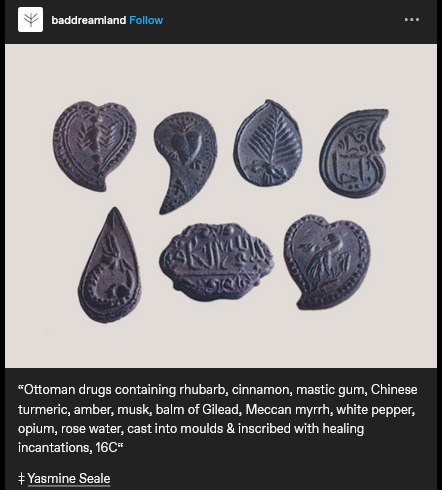
Caption reads: "Ottoman drugs containing rhubarb, cinnamon, mastic gum, Chinese tumeric, amber, musk, balm of Gilead, Meccan myrrh, white pepper, opium, rose water, cast into moulds & inscribed with healing incantations, 16C". Credited with a link to Yasmine Seale, on social media.
Original linked source doesn't mention where these particular tablets/molds were created, kept, displayed, etc. But I wanted to learn more and found a kinda recent summary of tenzu which was published by Nil Sarı (head of History of Medicine and Ethics Department at Istanbul University's Cerrahpasha medical school, president of Health History and Museology Association), which was presented at a conference in 2016:
Nil Sarı. "The Special Pharmaceutical Tablet “Tenzu” in Ottoman Medicine.” 7th International Congress for History of Islamic Medicine, October 24-28, Fez, Morocco, 2016: 24-28.
An excerpt of the text:
In Ottoman Turkish tenzu (tensuh) means "very rare beautiful thing" or "a box containing a variety of fragrances." Tenzu was also said to be the name of a place in Hitay (Eastern Turkistan / Xinjiang) where a medicinal clay - the main ingredient of the tablet tenzu - was imported from. Tenzu was a kind of theriac said to be effective against various ailments. Different tenzu prescriptions are noted in the texts [...] of several medical manuscripts of the 17th and 18th centuries. These tenzu prescriptions were described by various physicians, e.g. the head physicians Salih bin Nasrullah and Nuh Efendi as well as Hayatizade Mustafa Feyzi and Shaban Shifai who were palace physicians of the period. The special pharmaceutical tablet/pastille named "tenzu kursu" was formed in various shapes, i.e. oval, round, or rectangular. A measured amount of the drug preparation was compressed and shaped in a special brass mold named "tenzu kalibi" in Turkish. [...]
Prayers and ornamentations are engraved on the metal molds [...]. The expressions Deva al kulub (Drug for the heart) and Shifa al marghoob (The desired, yearned healing) inscribed on molds reinforce spirituality. [...] Inscriptions around the center of the other flower shaped pattern are Ferd, Hayy, Kayyum and feehi shifaun lin-naas (wherein is healing for mankind, Surah an-Nahl, verse 69). [...] Al-Hayy and Al-Qayyum are often used together. Al-Hayy signifies "ever-lasting life", and Al-Qayyum "self-existing life". [...] Sihhat bad (Have a good health) and Afiyet bad (Have a good appetite) are inscribed. [...] A. Suheyl Unver and Hayri Sozen published several tenzu prescriptions in their book "Turk Farmakaloji Tarihi I.", in 1960. [...] Tenzu prescriptions are found in several medical manuscripts kept in the Topkapi Palace Library, Suleymaniye Library and Istanbul University Rare Books Library.
Clay is a main ingredient [...]. Tiyn-i Tenzu is an unknown red colored clay. However, Terra Sigillata (Tiyn-i mahtum / muhurlu toprak) and Armenian Clay (Kil ermeni) are found in the prescriptions. [...] There are also animal products in the compositions, i.e. ambergris (amber), bezoar (badzehr), kermes (kirmiz), musk (misk), raw silk (harir-i ham / ham ipek), [...] and burnt deer antler (yanmisgeyik boynuzu). There are a wide variety of herbal drugs in the compositions, i.e. Acorus calamus [...], Aloe vera (Sabir), [...] Anchusa offinalis (Lisan-i sevr cicegi), Artemisia absinthium [...], Bambusa arundinaceae [...], Chenopodium album [...], Cinnamon (Darcin), Citrus aurantium [...], Crocus sativus (Za'feran), Embellia ribes [...], Gummi mastix [...], Heliotropium arborsecens [...], Nardustachys jatamansi [...], Potentilla reptans [...], Pterocarpus santalinus [...], Red rose/Rosa gallica [...], Rheum officinale (Ravend), Rumez acetosellaseed [...], Ruta graveolens (Keci Sadefi/Sedef Otu), Terminalia citrina [...], Terminalia chebula [...], Tormentilla (Tormentila).
Shaping and storage of these drugs are explained alongside some of the tenzu prescriptions. According to a recipe, all ingredients are beaten very thin on a porphyry (onyx marble) [...]. Each dose wrapped in gold foil is anointed an amount of almond oil. It is pressed into the mold, dried in the shade and stored in wood boxes. [...] Drugs in tablet form was an old tradition. In general, the preparation is poured onto a tray. [...] After dried in the shade, orange leaves are put between them. Stored in colored glass containers, they're reused when needed, squashed with water and drunk as a syrup. Also, flat pills made of a drachma weight were retained on the tongue in the mouth [...]. Although drugs in tablet form were used throughout Ottoman history either as a pastille or to be converted into syrup, the tenzu tablet molds were designed for the Ottoman sultans and members of the dynasty to make special tablets decorated with calligraphy [...].
[End of excerpt.]
All of these images are cropped screenshots of the PDF scan of the printed "conference works"; the PDF was uploaded online by Nil Sarı.


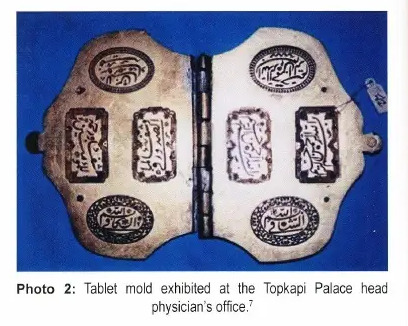

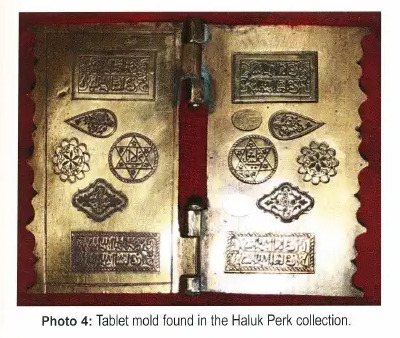
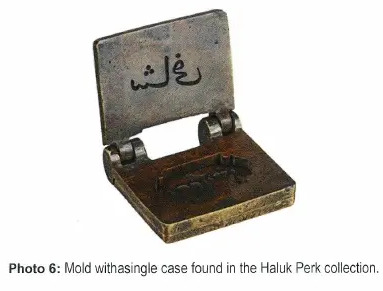
#sorry some of the non english is messed up because i had to transcribe the text myself from the image scans#also like that the Special Sweets Kitchen of the palace produced medicine
136 notes
·
View notes
Text
Surah Al Qasas: Chapter 2
Pharaoh divided the people of Egypt into two groups.
The two groups were:
-Bani Israel - who shifted to Egypt through Yusuf AS
-Qibti - The locals of Egypt
Although they were living in same land, Pharaoh had created a division.
He would oppress Bani Israel. He made them the lowest class and tortured them to the point that he would slaughter their sons and keep the women alive and no one from the other group stood up to defend them.
Because of the division. Firaun had done a good job of separating them, creating animosity between them.
This was very important for Firaun because if people start seeing themselves as one, then they may unify, and if they unify, then he may lose control over them. If you can keep people apart, if you can keep people divided, then you can pick them off easily. If people are united, you can't touch them. The easiest way to do that is to create a class society.
So, Pharaoh had a plan. He wanted to destroy, oppress, and control Bani Israel.
But Allah had a different plan. Allah wanted to make those oppressed people leaders and inheritors of the land as mentioned in Surah al Qasas.
Whose plan worked out at the end? Allah's plan!
Oppression and injustice cannot exist forever. Allah does not like fasaad. He allows it to happen, He let's the oppressors do whatever they want to only for some time.
Eventually what happens? Allah intervenes and seizes the oppressor.
We have studied again and again that any person who reached the height of power, eventually he was brought down.
Prophet SAW said, Fear the prayer of the oppressed, for indeed it is carried on clouds. Allah says by my honor and glory, I will surely help you even if it is after a time.
THIS IS WHY WE MUST NEVER LOSE HOPE.
There seemed to be no escape for Bani Israel, but weren't they saved? Yes.
Allah was telling this story to the Prophet (pbuh) when the Quraysh were oppressing him and every Muslim in Makkah. It sent a message that your pharaoh, the Quraysh, will be brought down very soon. Through the Prophet (pbuh), this story tells us that today's pharaoh 🇮🇱 will also be brought down very soon, and the oppressed people 🇵🇸 will be free. In the end, it is Allah's plan that wins.
#islamdaily#quran#islam#islamicreminder#islamicquotes#islamic teachings#islampost#islamquotes#free gaza#فلسطین#palestine
139 notes
·
View notes
Text

Surah Ad-Duhaa, the 93rd chapter of the Quran, holds significant meaning in Islamic tradition. It was revealed to the Prophet Muhammad during a period of distress and is often seen as a source of comfort and reassurance. The surah emphasizes Allah's compassion and support, reminding believers that after hardship comes ease and that they should remain patient and grateful. It also underscores the importance of caring for the less fortunate and being generous.🤍
14 notes
·
View notes
Text
𝔻𝕒𝕪 𝕒𝕟𝕕 ℕ𝕚𝕘𝕙𝕥 ℝ𝕠𝕦𝕥𝕚𝕟𝕖
.ೃ࿐ 𝓒𝓻𝓮𝓪𝓽𝓲𝓷𝓰 𝓪 𝓻𝓮𝓪𝓵𝓲𝓼𝓽𝓲𝓬 𝓻𝓸𝓾𝓽𝓲𝓷𝓮 .ೃ࿐
Not everyone' s day or night routine is the same. Ultimately, we all have different routines we stick to--due to our different lifestyles.
For those who do not have a solid routine to follow, or is not consistent with their routine, or even wants to create a routine; I have listed ideas you can add to your new or current routine for more productivity, but also realistic to stay consistent.
Just like when you want to achieve a certain goal, make your routine realistic to your needs and lifestyle. If you have a busy schedule, add and work around what is best for you. For someone like me who can at times be lazy to do a task, I made it easier for myself to complete a task to do and set times for myself to enjoy like hobbies for that balance!
Try to challenge yourself everyday to stick by your own routine, and add habits that erases your current bad habits like going on your phone as soon as you wake up--to waking up and admiring the morning skies.

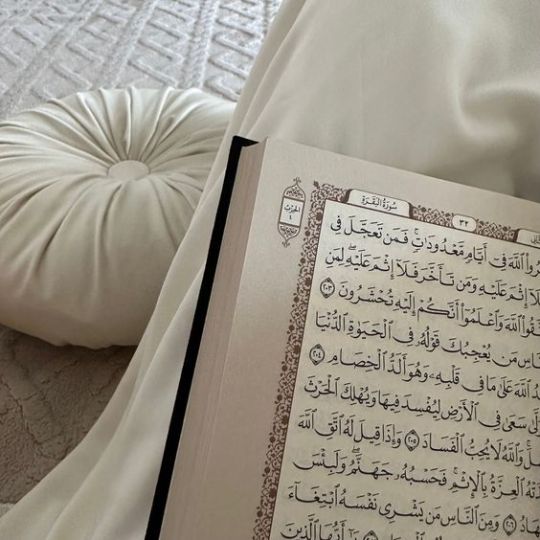

𝐸𝑎𝑟𝑙𝑦 𝑀𝑜𝑟𝑛𝑖𝑛𝑔 𝑅𝑜𝑢𝑡𝑖𝑛𝑒
♡ Start your morning with extra prayers and focusing on your faith ♡︎
Perform Tahajjud (If you wake up earlier before Fajr Namaz or cannot sleep; perform tahajjud as your duas can become to reality!)
Perform your Fajur Sunnah and Fajr Farz
Do your daily Dhikr
Read the Quran (If you cannot read the Quran, recite any surah or dua you know by heart!)
It is highly recommended that you stay up after Fajr; however, for me, I most likely do fall right back asleep.
If you do however choose to stay up, use this time to work on any outstanding assignments or work that needs to be done. This alone creates more time to do other things in the afternoon, and prevents procrastination.



𝐷𝑒𝑣𝑒𝑙𝑜𝑝 𝑎 𝑆𝑘𝑖𝑙𝑙/𝐺𝑜𝑎𝑙
。・゚゚・ Developing a new goal or skill adds more productivity in your day-to-day routine and leaves less time for laziness. Continue that goal you wanted to achieve; or that skill you want to learn. When enhancing more skills, not only are you using useful time to your day, but you are also pursuing growth!
These goals and skills can be anything!
Here are a few ideas for skills to learn:
Learning Microsoft platforms
Learning a new language
Baking or cooking
Learning about Islam/Quran
Financial needs
Any form of art
Along with stepping towards the goal you have set for yourself! For instance, start adding Sunnah prayer day-to-day and make it a habit!
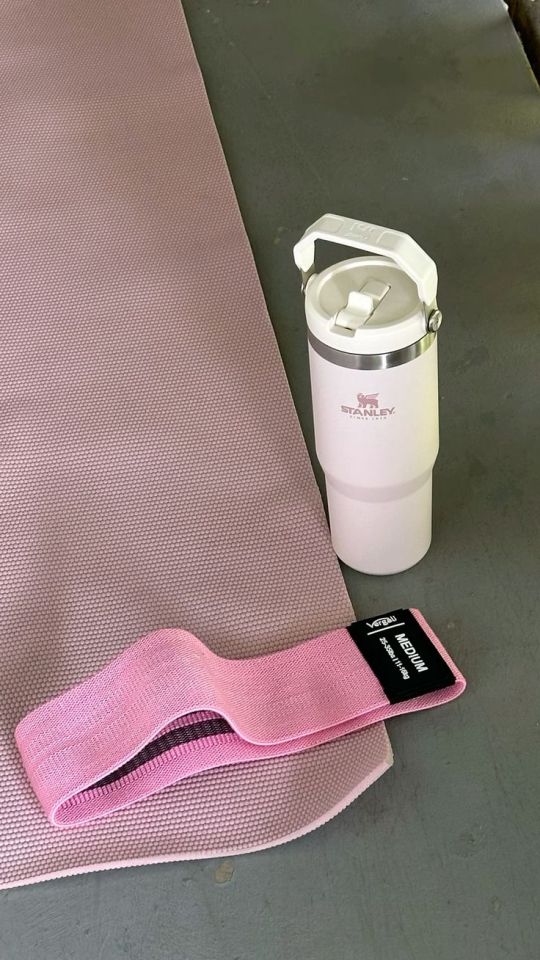


𝑯𝒐𝒃𝒃𝒊𝒆𝒔
・❥・Always make time for yourself and do something you find joy. Indulge in hobbies you enjoy or never tried before such as:
Watching a movie/TV show
Reading
Writing or drawing
Create a halal blog
Go on walks
Extra Dhikr
Journaling
Quality time with friends and family
Creating a vision board
Gardening
Pottery
Workout
Watch Islamic Podcast
With your hard work and long productive day, make sure to always make time for yourself for that balance--as balance is the most important thing. Without balance between work and time for yourself, it will lead to exhaustion and burnout.



𝑺𝒆𝒍𝒇 𝑪𝒂𝒓𝒆
♡ Self care isn't only about skin care and reading a book with tea; but it also means to rewind and relax, to do the things that are calming and peaceful to you. If the definition of self care means to sleep all day or watch Netfix, then so be it! ♡
Go take that nap; or perhaps lay in bed all day and watch that TV series you have been meaning to watch; put on some skin care products and read a book!
Whatever brings your mind and soul at peace--that is self care!
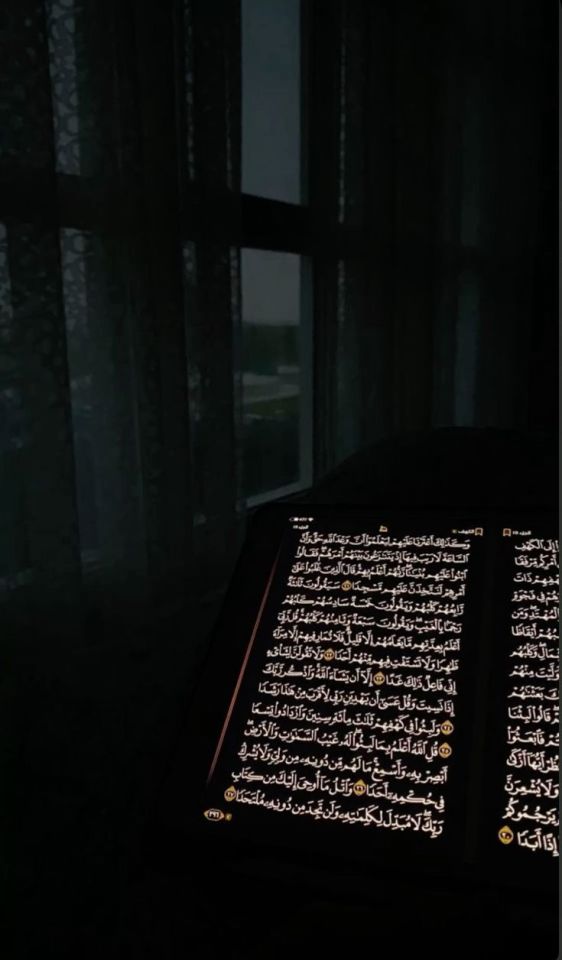

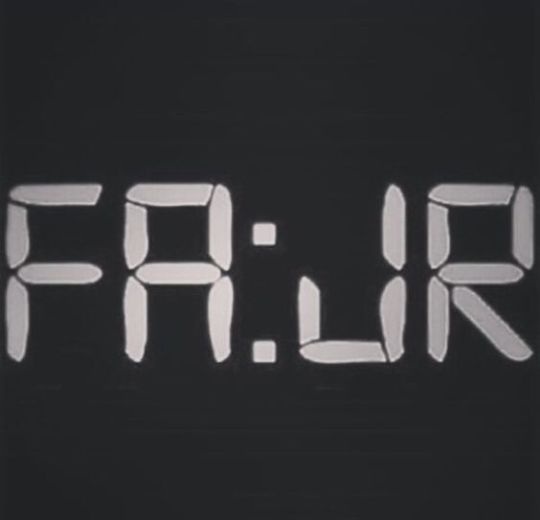
𝑵𝒊𝒈𝒉𝒕 𝑹𝒐𝒖𝒕𝒊𝒏𝒆
☆ ★ ✮ Half of us are most likely guilty from sleeping late--me for instance--however, try to make a habit on sleeping earlier or 30 minutes earlier than the time you usually sleep at. This will slowly train your brain to sleep at an early time and can gradually fix your sleep schedule! ☆ ★ ✮
Before you do sleep, some of the habits I have been consistent on are:
Performing Witr (If you are unable to do perform Isha sunnah prayers, then perform Witr after Isha Farz!)
Practice self care
Write in your journal (Write about your day; what you are grateful for; your wishes; or simply anything in your mind!)
10-15 minutes on your phones
Dust off your bed
Recite Ayatul Kursi (Along with other surahs you know)
Make Dua (Ask Allah subhanahu wa ta'ala to make it easier for you to wake up for Fajr and Tahajjud)
Perform Dhikr (Subhanallah; Alhamdulillah; Agstafurillah; Allahu Akbar; La illaha ilallah; La hawla wala quwwata illa bilah; Subhanallahi wa bihamdihi, Subhanallahil azeem)



#aesthetic#affirmations#becoming her#becoming that girl#deenislam#deenoverdunya#girl blogger#glow up#health and wellness#healthylifestyle#islampost#islamdaily#islamicquotes#islamic#islam#that girl#it girl#positive affirmations#positive thoughts#positive quotes#positivity#healing journey#this is a girlblog#muslimah#it girl energy#manifesation#manifesting#clean girl#skincare#islamicreminders
29 notes
·
View notes
Text
Lessons from Surah Al-Qalam: A Deep Dive into Divine Justice and Human Conduct
Surah Al-Qalam, the 68th chapter of the Quran, serves as a profound reminder of the principles of divine justice and human morality. This Surah, revealed in Mecca, addresses both the Prophet Muhammad (peace be upon him) and the disbelievers, offering lessons that are relevant to all of humanity. Here, we explore key themes and lessons from the Surah that guide Muslims towards righteousness and…
View On WordPress
#4 lessons from surah kahf surah al qalam islam sobhi#Accountability#Accusation of Madness#Adversity and Opposition#Believers vs. Disbelievers#Day of Judgment#Divine Justice#Divine Revelation#Eternal Salvation#Eternal Success#Faith and Righteousness#four lessons from surah kahf#Gradual Punishment#Guidance#how to learn surah al kahf surah al qalam summary#Human Conduct#Introspection#Islamic Belief#Jonah (Yunus)#lesson from surah al kahf#lessons from surah al baqarah#lessons from surah al kahf#lessons from surah nuh what is surah al qalam aboutz#lessons from surah qaf#lessons from surah qalam#lessons from surah qiyamah important lessons from the quran#lessons from surah yusuf yasir qadhi surah al qalam 1-16#lessons from surah zumar#lessons learned from surah al kahf#lessons learned from surah al qalam
1 note
·
View note
Text
One lesser-known aspect of the Quran is its emphasis on knowledge and scientific inquiry. The Quran encourages the pursuit of knowledge and reflection on the natural world, which is evident in several verses. Here are some points highlighting this aspect:
1. **Encouragement of Knowledge and Learning**: The Quran repeatedly emphasizes the importance of knowledge. For instance, the first word revealed to Prophet Muhammad (PBUH) was "Iqra," which means "Read" or "Recite." This is found in Surah Al-Alaq (96:1-5), which starts with, "Read in the name of your Lord who created."
2. **Reflection on Nature**: The Quran contains numerous verses that urge believers to observe and reflect on the natural world. Surah Al-Imran (3:190) states, "Indeed, in the creation of the heavens and the earth and the alternation of the night and the day are signs for those of understanding."
3. **Scientific Phenomena**: The Quran mentions various natural phenomena and encourages contemplation of these signs. For instance:
- **Astronomy**: Surah Al-Anbiya (21:30) mentions, "Do not the disbelievers see that the heavens and the earth were a closed-up mass, then We opened them out?" This is often interpreted as a reference to the Big Bang theory.( Allah knows if big bang theory is true and legit)
- **Embryology**: Surah Al-Mu’minun (23:12-14) describes the development of the human embryo in stages, which has been found to align with modern embryological knowledge.
4. **Oceans and Deep Seas**: Surah An-Nur (24:40) describes the depths of the oceans, mentioning the darkness found there, a phenomenon that was unknown to people at the time. It states, "Or [they are] like layers of darkness within an unfathomable sea which is covered by waves, upon which are waves, over which are clouds."
5. **Water Cycle**: The Quran also describes aspects of the water cycle. Surah Az-Zumar (39:21) says, "Have you not seen that Allah sends down rain from the sky and makes it flow as springs in the earth?"
The Quran is full of wisdom but we must understand it by doing justice with the Quran by reading it everyday with the intention to please Allah
#quranandsunnah#islam#islamdaily#quranquotes#islamislove#islam help#al quran#islamic#convert to islam#islamicpost
23 notes
·
View notes
Text
ramadan series: ramadan for women on their periods ♡
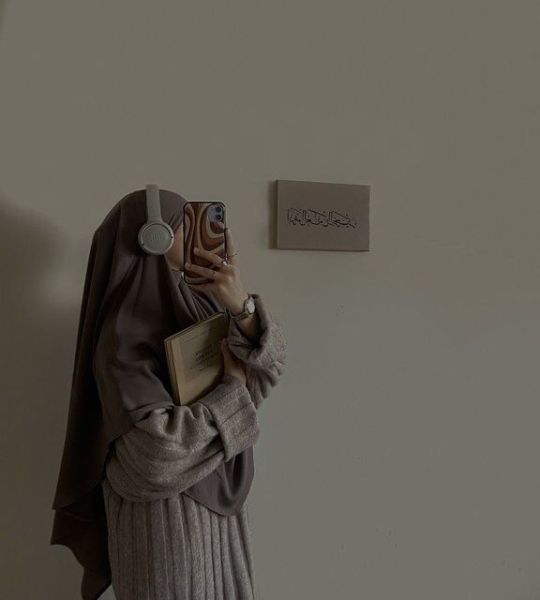
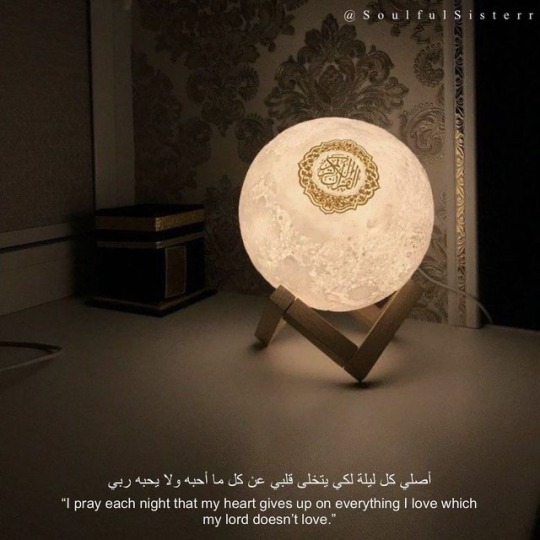
sometimes, it can be disheartening when we're on our period during ramadan - especially if during the last 10 days of ramadan - and it may feel like we are missing out on the blessings as we cannot fast or pray. however, there are other things we can do to take part and it is important to plan what you will do on these days in advance.
some things you can do are:
sit and talk to Allah سُبْحَٰنَهُۥ وَتَعَٰلَىٰ
one of my favourite things to do is just talk to Allah, whether I'm sitting down or walking around. He is always there listening, so why not talk to Him like He is your Friend? ask for what you would ask for during salah, have a conversation and pour out your heart as though you were in sujood - except now, you're just talking with him outside of prayer! this is a great way to boost your connection and relationship with Allah سُبْحَٰنَهُۥ وَتَعَٰلَىٰ .
gain islamic knowledge
there are many ways to do this such as: - reading an islamic book - watching islamic lectures / videos - listening to islamic podcasts
study surahs
if you type in 'tafsir surah _____' on youtube, there are videos out there that can help you understand surahs in more depth and learn lessons from them. someone on youtube said why not study Surah Maryam to learn about an important woman during this time and get inspiration from her!
there are many resources to study the commentary of the Qur'an online that you can read, too.
eat healthily and regain nourishment
this is a time to eat healthily and drink lots of water to rejuvenate your body and have a break before you fast again. cook and eat healthier recipes to help get your energy up so that when you do fast again, you are able to do so better Insha’Allah.
increased dhikr
make a plan for yourself. for example - maybe you'll want to recite istighfar and subhanallah x250 times during salah times so that, although you can’t pray at the moment, you are still remembering Allah during prayer times and gaining blessings.
perhaps you can even wake up at Tahajjud or Fajr time and do dhikr then, to remember Him during the early hours when you would usually wake up to fast and pray.
you can recite Durood Sharif as soon as you wake up or when you’re about to go to sleep
learn names of Allah and invoke Him with them during du’as.
listen to the Qur'an
we may not be able to physically touch and read the Qur'an Mushaf during this time, but we can still listen to it, alhamdulillah. play it aloud and listen to it throughout the day as you cook, study, go for a walk, etc. there are many playlists of the Holy Qur'an on Spotify, Apple Music and YouTube.
you can also read it on your devices (phones, laptops), as you are not physically touching the Mushaf, and can download PDFs of the Qur’an too.
do charitable acts
increase your charity and pay sadaqah, give to the poor, have a little sadaqah box, make iftar for the homeless or for neighbours or family and friends.
rest!
our bodies go through different things during our periods and different women experience different symptoms. aside from doing good deeds, make sure to also listen to your body and take care of your physical and mental health too. this can also help get your energy levels up to fast again after, Insha’Allah, and is also counted as a good deed as you will be taking care of yourself!
don't forget that good deeds are multiplied during ramadan, alhamdulillah, so don't fret when you get your period. Allah سُبْحَٰنَهُۥ وَتَعَٰلَىٰ can and will still be pleased with you and your acts and answer your du'as.
#ramadan series#islam#ramadan#islamic#dua#muslim#muslims#muslimah#deen#religious#islamic dua#holy quran#hadith#quran#allah#allah swt#qur'an#islamic reminders#religion#ramadan mubarak#allahﷻ#tasbeeh#zikr#azkar#islamdaily#prayer#fajr#prayers#maghrib
821 notes
·
View notes
Text
Surah Al-Asr: The Declining Day
1. By Time
2. Verily, man is in loss
3. Except those who believe and do righteous deeds, and recommend one another to the truth, and recommend one another to patience.
وَالْعَصْرِ
إِنَّ الْإِنسَانَ لَفِي خُسْرٍ
إِلَّا الَّذِينَ آمَنُوا وَعَمِلُوا الصَّالِحَاتِ
وَتَوَاصَوْا بِالْحَقِّ وَتَوَاصَوْا بِالصَّبْرِ
By Time:
Past, present, future
- Al-Asr is the time in which the movements of the Children of Adam occur, whether good or evil.
- Allah swears by time, that man is in *Khusr*, which means in loss and destruction.
- Oath by Time signifies that Time is witness to the truth that man is in sheer loss except for the people who possess the four qualities.
Four Principles:
1. Believe, Faith in Islam (Imaan)
2. Righteous deeds
3. Remind others of the Haqq (truth, rights, reality)
4. Remind others of Sabr (patience)
Notes:
- Allah is teaching us, through the lens of time, that we will fail unless we focus on four virtues that will allow us to win in this life and the hereafter.
- It reminds us of the value of time in life.
- It reminds us of the importance of faith.
8 notes
·
View notes
Text
Lessons from Surah Al-Kahf
1. The Power of Faith and Trust in Allah:
The story of the people of the cave (Ashab al-Kahf) highlights the importance of unwavering faith in Allah. These young believers took refuge in a cave to escape persecution, demonstrating their trust in Allah’s protection. Allah rewarded their faith by preserving them for 309 years, illustrating that true faith and reliance on Allah can lead to divine assistance.
2. The Nature of Worldly Life:
The parable of the rich man and the poor man teaches us about the transient nature of worldly wealth and the importance of gratitude and humility. The rich man’s arrogance and ingratitude led to his downfall, while the poor man’s faith and humility were highlighted as virtues. This story reminds us that material wealth is temporary and that our real success lies in our relationship with Allah.
3. Knowledge and Humility:
The encounter between Prophet Musa (Moses) and Khidr (a wise servant of Allah) underscores the value of seeking knowledge and maintaining humility. Despite Musa’s status as a prophet, he learns from Khidr that divine wisdom can be beyond human understanding. This story encourages us to pursue knowledge while acknowledging that there is always more to learn and that Allah’s wisdom is supreme.
4. The Trials of Life:
Surah Al-Kahf addresses various forms of trials: the trial of faith (the people of the cave), the trial of wealth (the rich man and the poor man), the trial of knowledge (Musa and Khidr), and the trial of power (Dhul-Qarnayn). Each story teaches us how to navigate these trials with faith, patience, and reliance on Allah. It highlights that life’s challenges are tests from Allah, and our responses to these trials shape our spiritual journey.
5. Protection from Dajjal:
Prophet Muhammad (peace be upon him) advised Muslims to recite the first ten verses of Surah Al-Kahf as a protection from the trials of Dajjal (the Antichrist). This emphasizes the surah’s importance in safeguarding one’s faith and seeking refuge in Allah from major trials and tribulations.
6. The Importance of Divine Guidance:
Throughout the surah, we see that divine guidance is crucial for success. The people of the cave were guided to safety, Musa was guided to knowledge, and Dhul-Qarnayn was guided to justly use his power. This teaches us to constantly seek Allah’s guidance in all aspects of our lives.
#duaa#islam help#islamdaily#islamic#islamicreminders#islampost#islamquotes#muslim#welcome to islam#islam#quranic#quran#quranquotes
16 notes
·
View notes
Text

Allah calls Himself Al-Qayyoom— The Sustainer, The Self-Subsisting— on three occasions in the Quran. Al-Qayyoom is the One who is self-existing while every being exists through Him and because of Him. He is completely free of any dependence on anything else, while the whole creation depends entirely on Him!
The Self-Existing, The All-Sustaining
Qayyoom comes from the root qaaf-waw-meem, which points to five main meanings. The first meaning is to stand or to rise up. The second main meaning is to be or begin, the third to be ongoing and to exist. The fourth main meaning is to be founded or to be built on and the fifth is to manage and to make right.
This root appears 660 times in the Quran in 22 derived forms. Examples of these forms are qaamoo (“they stand”), aqeemoo (“establish”), istaqaamoo (“remain firm”), al qawma (” the people”) and al qiyaamah (“the Resurrection”).
Al-Qayyoom comes always in combination with the beautiful name Al-Hayy in the Quran, with Al-Hayyreferring to the attribute of everlasting life and Al-Qayyoom signifying the attribute of self-existing life. Al-Qayyoom is the One who established Himself on His own and is the foundation upon which all things exist. He is the One who sustains and manages the complete creation and at the same time is without any need of any type of sustenance Himself!
Al-Qayyoom Himself says: . . . Allah – there is no deity except Him, the Ever-Living, the Sustainer of [all] existence [Quran,2:255] And [all] faces will be humbled before the Ever-Living, the Sustainer of existence. And he will have failed who carries injustice [Quran, 20:111]
The beautiful concept of qiyaam
Al-Qayyoom is among the greatest of the names of Allah ‘azza wajal and its origin is the word al-qiyaam. From this root a few of the most important concepts of Islam evolve. The iqaamah, is the call just before the obligatory prayer is established. In our prayer we recite the Quran in the standing position (qiyaam); we do not recite Quran in the sitting position, nor during our ruku(bowing), nor during our prostration. Great importance has the night prayer for the believer, which is referred to as qiyaam ul layl. True believers are adorned with istaqaamah (to remain firm) on the straight path of Islam (siraatul mustaqeem) and ultimately we will all be brought in front of Al-Qayyoom on the Day of Standing, Yawm ul Qiyaamah.
How Can You Live By This Name?
1. Establish salah.
Aqeemoo as-salah! Al-Qayyoom instructs you many times in the Quran to establish the prayer. But do you really establish your salah in your daily life, or do you fit your prayers around your daily routine? One of the sahaabah asked: “What is the thing that Allah loves most?” The Prophet said: “The thing that Allah loves most is when his people pray salah on time.” [Al-Bukharee] Fit your daily activities around your salah and not your salah around your daily activities. Focus on praying your salah on time for a week and see the difference in your emaan!
2. Recite surah Al-Ikhlaas often.
This surah contains a beautiful description of Allah, His Oneness and His self-existing and sustaining attributes . The Prophet salallahu ‘alayhi wa sallam heard a man reciting ‘Qul huwa Allaahu ahad,’ and said, “It is his right.’ They asked, ‘O Messenger of Allaah, what is his right?’ He said, ‘Paradise is his right.’ [ Ahmad] He salallahu ‘alayhi wa sallam also said: “Whoever recites Qul huwa Allaahu ahad ten times, Allaah will build for him a house in Paradise.” [Saheeh al-Jaami’ al-Sagheer] So recite it whenever you can: whenever you have a spare moment, fill it with recitation of surah al-Ikhlaas!
3. Help sustain the needy.
The Prophet salallahu ‘alayhi wa sallam said: If you love the poor and bring them near you . . . Allah will bring you near Him on the Day of Resurrection.[At-Tirmidhi]
4. Humble yourself.
We have no reason to ever be arrogant, and this name should humble us. When you were born your parents needed to do everything for you; you could not even sit by yourself. As you grow, developing your intellect and body, you become less dependent on your parents. Then your body and mind start decreasing in strength, and you go back to the beginning where others need to take care of you again. Even when you feel strong, still remember you are completely dependant on Al-Qayyoom.
5. Help in the cause of Islam.
Even though Al-Qayyoom does not need any of us, nor does He need food, drink or sleep, He made you a beautiful promise in the Quran: O you who believe! If you “help Allah,” He will help you. [Quran,47:7] This means you should do your best to help in the cause of Allah’s Deen, for Al-Qayyoom is the One Who is in full charge of all things. Ask Him to make you of those who help the Deen by spreading the message of the Quran, teaching and helping others.
6. Think about the Day of Standing.
The Prophet salallahu ‘alayhi wa sallam said, You will surely stand before Allah, no screen between Him and you, no interpreter to translate for you. Then He will say, ‘Did I not bring you wealth?’ He will say, ‘Yes.’ Then He will say, ‘Did I not send you a Messenger?’ He will say, ‘Yes.’ Then he will look to his right and left and see nothing but Hell. So protect yourselves from it even with half a date (in charity), and if not then with a kind word. [Al-Bukharee] Daily remind yourself about this moment and make sure you do a deed of charity each day, even if it’s a kind word to someone!
7. Stand in the night.
The best prayer after the obligatory ones is the night prayer [Muslim]. Abu Sulaimaan Ad-Daaraanie said, Those who pray in the night enjoy when they are observing their night prayer more than what the people of pastime and fun enjoy from their pastime. If not because of the night, I would not have loved to remain in this world. When Umar was dying, he said I do not grieve on anything of this life except the night prayer. Some people think only those who have strong emaan can pray and they are not good enough, but in fact qiyaam ul layl is the opportunity for those who feel far away from Allah to become closer to Him, so go for it and motivate others to gain extra reward!
#allah#islam#revert help team#asma al husna#revert help#muslim#ayat#daily#allah’s name#dua#pray#prayer#salah#muslimah#hijab#religion#reminder#mohammed#new revert#new convert#new muslim#how to convert islam#converthelp#convert islam#become a muslim#welcome to islam#daily ayat#prophet#god#revert
10 notes
·
View notes
Text
■ Surah Fatiha for healing:
The recitation of Surah Fatiha is a powerful spiritual practice that carries immense blessings and healing energy. When recited with sincerity and focus, it has the potential to alleviate pain and bring relief to the one who is ill. The specific mention of reciting it 41 times between the Sunnah and Fard of Fajr indicates the significance of this time for seeking healing and blessings.
Performing Dam (blowing) on an ill person after the recitation of Surah Fatiha is a practice rooted in the spiritual healing traditions of the Awliya Allah. It is believed to transfer the healing energy and blessings of the recitation to the person in need, providing relief and aiding in their recovery. The application of one's own saliva onto the eyes after reciting Surah Fatiha is mentioned to be beneficial, indicating the holistic approach to seeking healing in the teachings of the Awliya Allah.
It's important to approach such practices with sincerity, faith, and the intention of seeking healing through the blessings of Surah Fatiha. Additionally, seeking guidance from a knowledgeable spiritual guide or scholar can provide further insight and understanding into the spiritual significance and application of these practices.
May Allah (ﷻ) grant healing and relief to all those who are in need, and may the recitation of Surah Fatiha bring blessings and mercy to the hearts and souls of the believers.
Ameen Bijaahi Nabiul Kareemﷺ
#muslim#islam#muslimah#islam help#muslimah motivation#islamic saying#islamic quote#deen#islamic#islampost#sufi wisdom#sufi#sufism#holy quran#al fatihah#allahuakbar#allah#believer#spirituality
14 notes
·
View notes